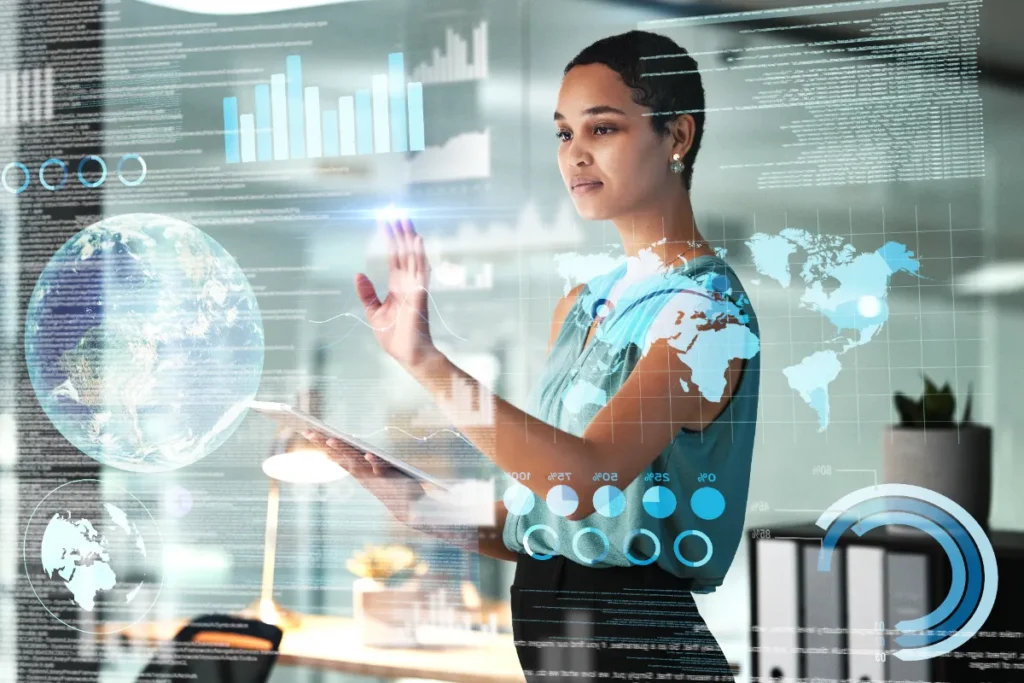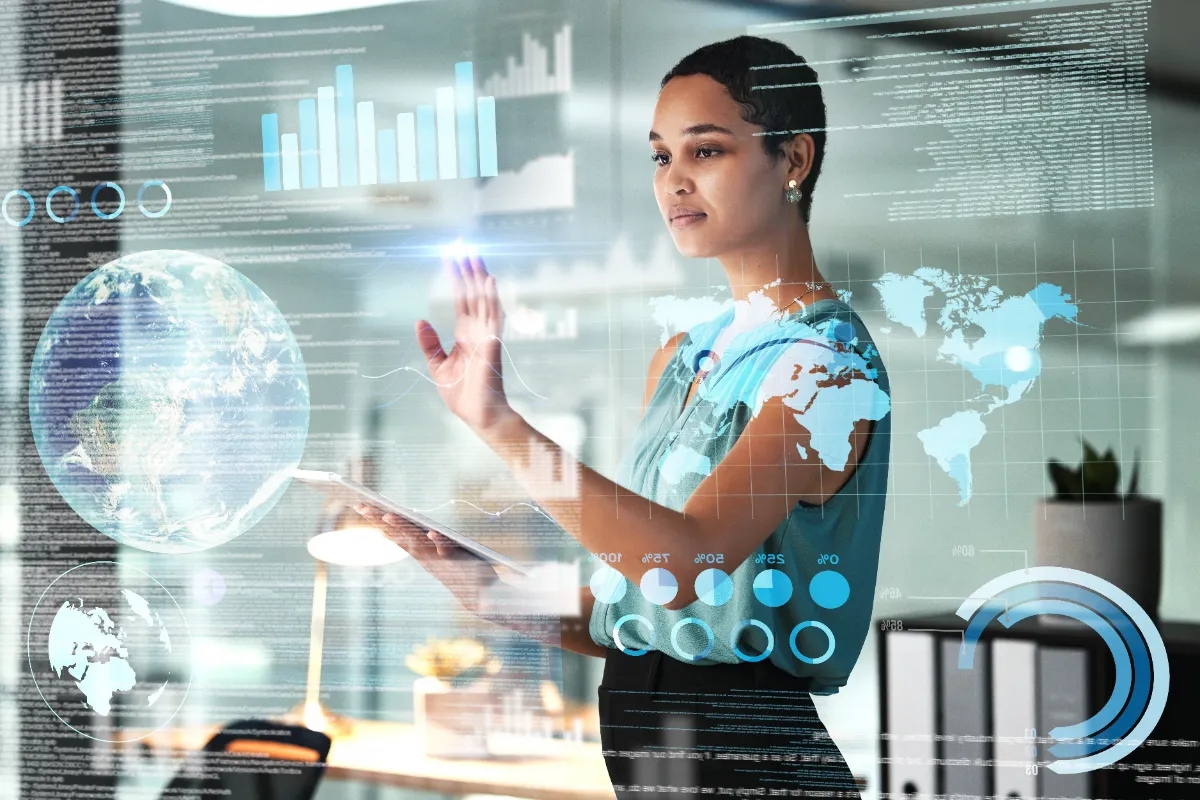
Artificial Intelligence (AI) is not just changing the way we live and work; it’s also having a profound impact on the global economy. From boosting productivity to creating new industries, AI is at the forefront of economic transformation. Let’s explore how AI is reshaping the economic landscape and what it means for the future.
Driving Productivity and Efficiency
AI excels at streamlining operations, reducing errors, and speeding up processes. By automating routine tasks, businesses can focus on innovation and strategic planning, leading to increased productivity and efficiency across various sectors.
Creating New Job Opportunities
While AI does automate certain tasks, it also generates new job opportunities in emerging fields like AI development, data analysis, and cybersecurity. The demand for skilled professionals in these areas is driving job growth and contributing to the economy.
Enhancing Decision-Making
AI’s ability to analyze vast amounts of data in real-time helps businesses make informed decisions quickly. This leads to better resource allocation, risk management, and strategic planning, ultimately enhancing economic performance.
Transforming Industries
From healthcare and finance to manufacturing and agriculture, AI is transforming industries by introducing innovative solutions and services. This not only improves industry efficiency but also stimulates economic growth by creating new markets and opportunities.
Boosting Innovation
AI is a powerful tool for innovation, encouraging the development of new products, services, and technologies. This culture of innovation fuels economic growth by attracting investments and fostering competitive markets.
Improving Quality of Life
AI contributes to the economy by improving the overall quality of life. AI-driven advancements in healthcare, education, and transportation make services more accessible and efficient, leading to healthier, more educated populations that drive economic development.
Challenges and Considerations
While AI offers numerous economic benefits, it also presents challenges, such as job displacement in certain sectors and the need for re-skilling workers. Addressing these challenges requires thoughtful policies and investments in education and training programs.
Global Economic Impact
AI’s impact on the economy is not confined to developed nations; it has the potential to drive growth in developing countries by improving access to education, healthcare, and financial services, thus reducing economic disparities.
Sustainability and AI
AI can also play a crucial role in promoting sustainability by optimizing energy use, reducing waste, and helping monitor and combat climate change, contributing to a more sustainable economic future.
The Future of Work
AI is reshaping the future of work, leading to more flexible, efficient, and collaborative work environments. As AI continues to evolve, it will redefine job roles, work processes, and the very nature of work itself.
AI’s influence on the global economy is undeniable, offering both exciting opportunities and challenges that need to be navigated carefully. By embracing AI and preparing for its impacts, we can harness its potential to drive economic growth, innovation, and improve the quality of life for people around the world. The future shaped by AI promises to be dynamic, inclusive, and prosperous.




